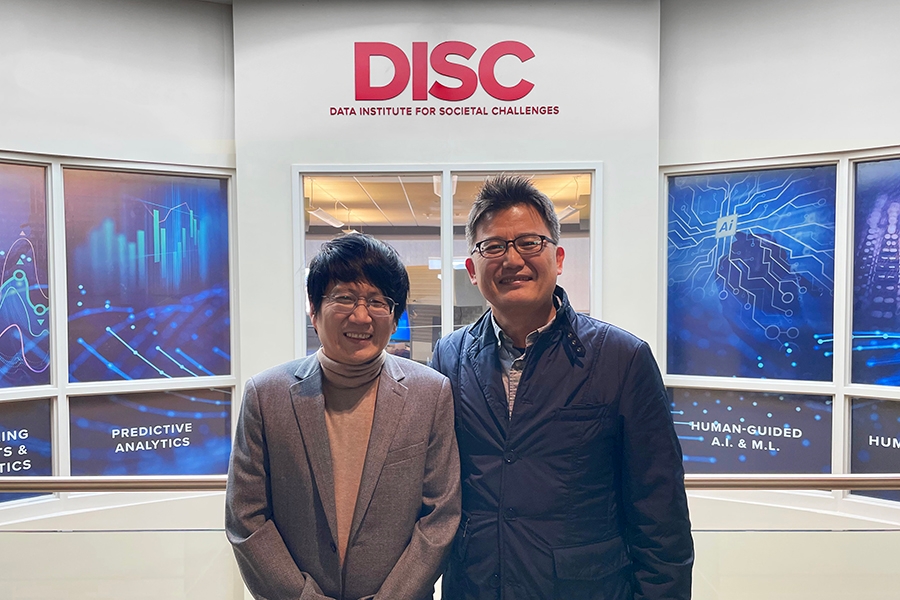Do you own your personal online data? That was the premise of the guest lecture by Yong Jin Park, Ph.D., visiting scholar at Harvard University and professor at Howard University, when he visited OU’s Data Institute for Societal Challenges at the invitation of Jeong-Nam Kim, Ph.D., professor and Gaylord Family Chair of Public Relations and Strategic Communication at the Gaylord College of Journalism and Mass Communication.
Park’s lecture, “Social Media-Algorithm, AI, and Data-Human Life, Death, and Inequalities,” focused on two primary topics: the socio-economic disparities in data control and the regulation of data by social media companies, users, the government and non-government experts.
“Biases introduced through the use of artificial intelligence and the proliferation of algorithms and surveillance have contributed to the plight of the poor and disadvantaged communities,” Park said.
According to Park, artificial intelligence issues are fundamentally about data. Platforms that use artificial intelligence algorithms, such as YouTube, Netflix, and Facebook, associate users based on personal data points. They use these associations to show users ads or suggest content they may like.
“By using this top-down approach, technology could actually be used as a tool to reinforce social inequity,” Park said.
Park also pondered who should control users' personal data when they die.
“In Europe, data is treated as a physical asset that can be inherited,” Park said. “However, there are no guidelines like this in the United States.”
Some platforms that use artificial intelligence, like Zynga, express in their community rules that all data will be deleted after 180 days of non-activity. But Google, which also owns YouTube, requires users to grant the company the right to use their data anywhere and at any time – even if a user stops using their services.
“So, who should be responsible for data privacy: The social media companies? The individual user? The government? A non-government expert body,” Park asked. “I don’t think marketplace regulation will work, but data privacy shouldn’t be a social luxury.”
This lecture was a part of DISC’s visiting lecture series. To view other upcoming events, visit DISC’s website or subscribe to DISCoverings, a quarterly email newsletter. To learn more about Park’s work, visit the Berkin Klein Center.


